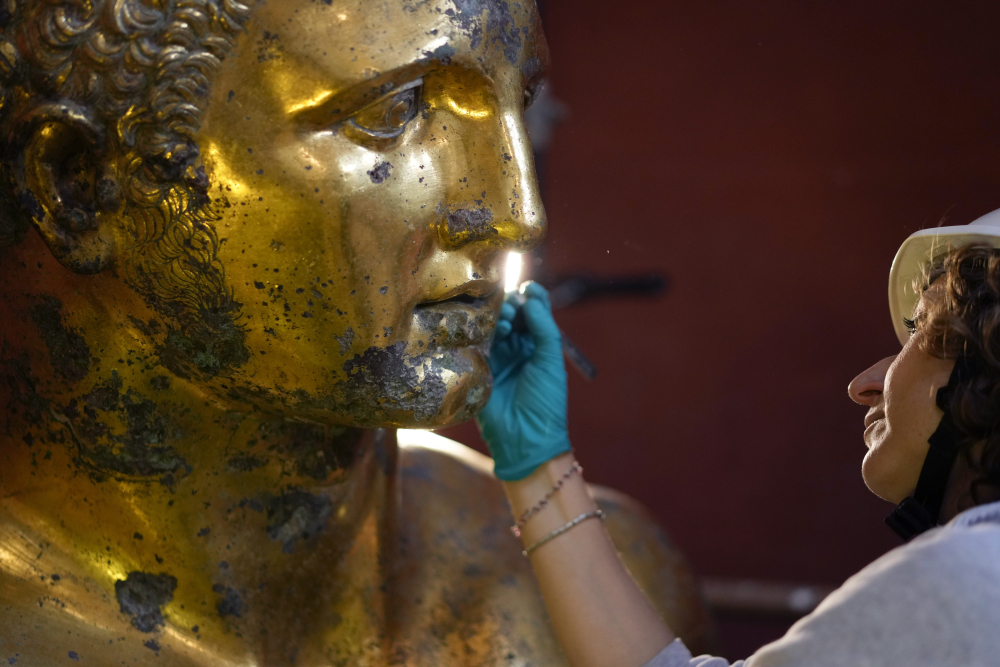Known as the longest-lasting political system in world history, the end of the Roman Republic came nearly 2,000 years ago. Founded in 509 B.C. after the overthrow of the last tyrant king, the Roman people built a series of safeguards, checks, and balances into their government so powerful that they believed no one person or faction could ever overturn the will of the people.
The Romans feared unchecked political power, so they elected two consuls annually to oversee government matters and keep a check on each other. A senate made up of patricians mirrored elements of our government and worked in tandem with a body similar to our House of Representatives that represented the common people. This hierarchical structure facilitated negotiation and compromise for centuries, but it eventually led the Romans to become complacent, with disastrous results.
Over time, economic disparities began to cause friction among politicians who sought their own interests while sabotaging their opponents. Violent mobs took to the streets (at one point, they locked senators in a building and threatened to burn them alive) and a civil war broke out, with each side claiming to want to restore the ideals of the republic.
Sulla, a general and statesman, was the first dictator to seize power by force, marching on Rome at the head of his army after a bloody battle in 82 BC. He terrified the quickly assembled Senate with a lengthy speech while his soldiers massacred thousands of prisoners just outside, their screams easily heard inside the building. Yet after only three years in power, Sulla stunned everyone by deposing and successfully implementing a number of governmental and legal reforms.
Then came Julius Caesar, who was brutally murdered in 44 BC after declaring himself “dictator for life.” He was assailed by around 60 senators eager to restore the representative form of government that had served the Roman people well for nearly five centuries. Unfortunately, their efforts were in vain. After a series of violent civil wars, the Roman Republic descended into dictatorship, and the people traded their freedom for the promise of peace and stability brought about by a single man.
This resulted in a succession of emperors ranging from responsible leaders like Augustus to insane, vengeful figures like Caligula, Nero, and Caracalla.
In his book A Mortal Republic, Edward Watts writes, “The Roman Republic fell because it was allowed to perish, inflicted with a thousand little wounds by Romans who thought it would last forever…. In ancient Rome and in the modern world, the republic is something to be cherished, protected, and respected. If it falls apart, an uncertain, dangerous, and destructive future awaits.”
Watts reflects on the motivations of ambitious politicians such as Caesar, Crassus, Cicero, and Cato, and concludes his book with the following:
“These men's selfish pursuit of personal glory ensured that the Romans soon reverted to a form of elite political competition, with no limits on the means they would use to defeat their opponents. And the fact that ordinary Romans did not immediately oppose all of these selfish acts and punish all of these actors by withholding their votes only encouraged more and more extreme behavior.”
Can our country effectively draw on the lessons of 2,000 years ago to prevent a recurrence of what happened in Rome? Two recent articles in The Economist examine the question of whether America can “survive a dictator.” The articles point out that historically, democracies have been sustained not by existing laws but by “the values of the people, the judges, and the civil servants.”
One of the article's ominous conclusions – “America is not a country that can stand dictators” – should serve as a stern warning to us all.
Copy story link
Related article




Invalid username/password.
Please check your email to confirm and complete your registration.
To reset your password, please use the form below. After submitting your account email address, you will receive an email with a reset code.